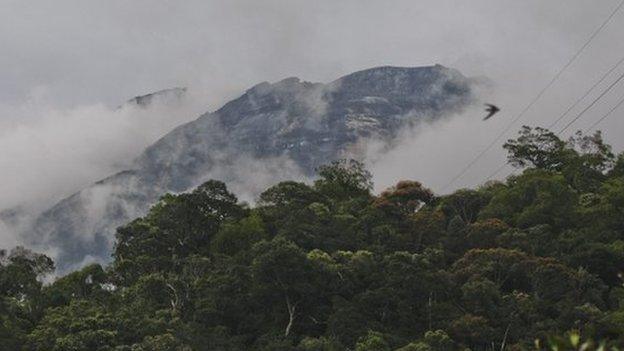Kinabalu mountain 'nudists': Tourists in Malaysia court
- Published
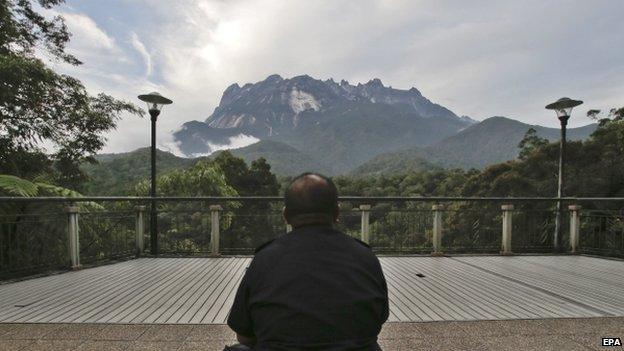
Many in the Kota Kinabalu region consider Mount Kinabalu to be sacred
Four Western tourists accused of being part of a group who posed nude at the top of Malaysia's Mount Kinabalu have appeared in court in Sabah state.
Authorities said the two Canadians, a Briton and a Dutchman may be charged with causing public nuisance.
Mt Kinabalu was hit by a magnitude 6.0 earthquake last Friday which left 18 people dead, including children.
A senior minister last week said the tourists had angered the spirits of the mountain, which is considered sacred.
Six people sought
Ranau district police chief Mohd Farhan Lee Abdullah confirmed to the BBC that the authorities had arrested a British woman at Tawau airport in Sabah on Tuesday.
The two Canadians, who are siblings, and the Dutchman turned themselves in to police on the same day.
Their lawyer, Ronny Cham, told the BBC's Jennifer Pak that he had requested the four be held apart from other detainees in order to ensure their safety.
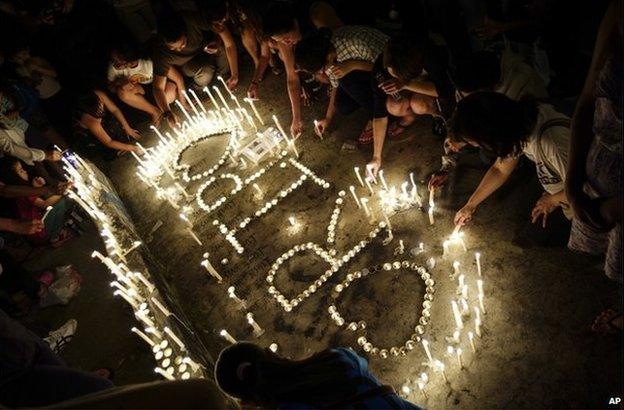
A candle-lit vigil was held on Tuesday for the victims of the Mount Kinabalu earthquake
The group appeared in court on Wednesday to have their remand extended, according to Malaysian newspaper The Star. They will now be held until Saturday while police continue their investigation.
Jalaluddin Abdul Rahman, Sabah's police commissioner, was quoted by AFP news agency as saying that the authorities may charge them with causing a public nuisance.
He said they were still looking for six other tourists from the same group "and we will catch them".
The father of the British tourist who has been arrested, Eleanor Hawkins from the English city of Derby, said he was extremely worried about her. "I have got every faith in [Malaysia's] judicial system. I just hope they don't make an example of them," Tim Hawkins told the Guardian newspaper, external.
'Disrespect'
The group of 10 foreigners had allegedly stripped naked and posed for pictures on 30 May. They were also said to have urinated on the mountain.
The Muslim-majority country is socially conservative, and Mount Kinabalu is also considered sacred by Sabah's Kadazan Dusun tribe.
Pictures posted on social media angered many in Malaysia, but public sentiment intensified after the quake.

Why is Kinabalu sacred?
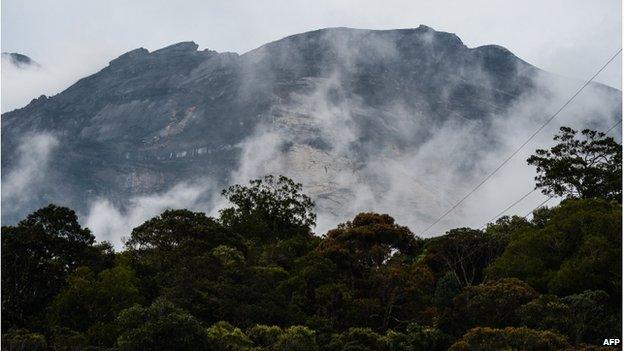
Sabah's Kadazan Dusun tribe believe the mountain houses the spirits of their dead ancestors.
The name Kinabalu is derived from the tribe's phrase "Aki Nabalu", which means resting place of the dead.
Climbers are told by guides, many of whom are Kadazan Dusun, to treat the mountain with respect and to refrain from shouting, screaming or cursing at it.
Every December the tribe conducts a ritual called the Monolob, external to appease the spirits and allow climbers to continue visiting the mountain.
A priestess, called a Bobolian, makes an offering of seven white chickens accompanied by seven chicken eggs, betel nuts, tobacco, limestone powder, and betel plant leaves. The Bobolian leads a chant and the chickens are then slaughtered, cooked, and given to the ceremony participants.
In the past, this ceremony was conducted before every ascent, and climbers used the cooked meat as rations for their journey.

Last weekend, Sabah's deputy chief minister, Joseph Pairin Kitingan, had linked the earthquake to the tourists' act. He said the tragedy was a "confirmation" that they had showed "disrespect" to the mountain.
Sabah's tourism minister, Masidi Manjun, said later that this idea was "misconstrued", but added that the tourists' actions "were against the people of the largest tribe in Sabah".
Some officials have demanded that the foreigners be tried in a native court for flouting local customs.
Mr Masidi said on Wednesday that searchers had found the bodies of the last two missing people.
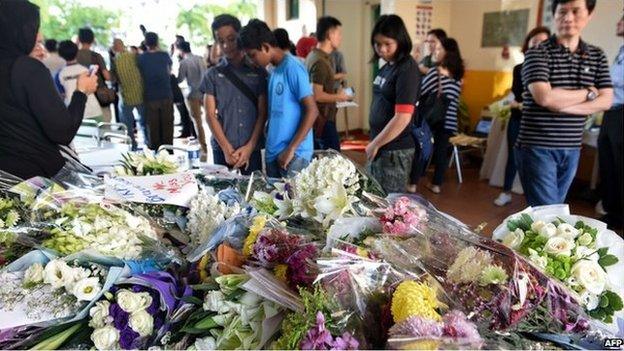
Mourners left tributes to primary school victims in Singapore over the weekend
Singapore's education ministry identified the two bodies as pupil Navdeep Singh Jaryal Raj Kumar and teacher Mohammad Ghazi Bin Mohamed.
They were part of a group from Tanjong Katong Primary School who were climbing the mountain with guides when the earthquake struck. Seven pupils, two teachers and a guide were killed.
Others killed included Malaysians and citizens from China, Japan and the Philippines.
- Published5 June 2015
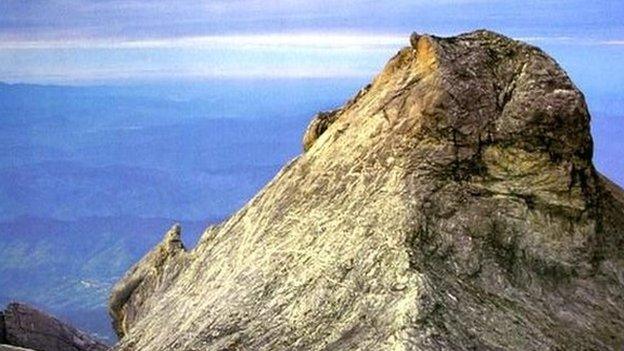
- Published8 June 2015
